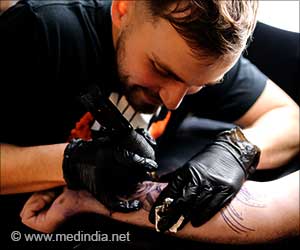Early surgical intervention led to better outcomes in patients suffering from venous leg ulcers and enlarged veins named varicose veins.

‘The current guidelines should be changed so that patients with leg ulcers are treated with surgery at an earlier stage. This approach will lead to better outcomes and improve patients' quality of life.’
Read More..




The researchers behind the study, published in JAMA Surgery, suggest that current guidelines on treating leg ulcers should be revised to include early assessment of varicose veins and surgical treatment of leg ulcers to deliver clinical benefits and cost savings for the NHS.Read More..
Lead author of the study Professor Alun Davies, Professor of Vascular Surgery at Imperial College London and a Consultant Surgeon at Imperial College Healthcare NHS Trust, said:
"Venous leg ulcers cause enormous physical and mental distress to patients as well as having a financial impact on the NHS. Our study is the first to show that early surgical treatment of leg ulcers leads to faster healing and the reduced risk of the ulcer coming back compared to current methods.
The NHS spends around 2 per cent of its budget on managing lower limb wounds and there is an urgent need to find more effective treatments. We believe that the current guidelines should be changed so that patients with leg ulcers are treated with surgery at an earlier stage. This approach will lead to better outcomes and improve patients' quality of life."
The main treatment for leg ulcers is compression bandages or stockings, to improve the vein function in the legs. There are also surgical treatments such as endovenous ablation - a 'keyhole' treatment to close varicose veins. The treatment, under local or general anaesthetic, involves a small fibre passed through a catheter and positioned at the top of the varicose vein.
Advertisement
The researchers wanted to see whether performing endovenous ablation to treat varicose veins at an earlier stage can lead to faster healing and reduce the risk of venous leg ulcers returning, requiring further treatment.
Two hundred and twenty four patients were randomly assigned to receive endovenous ablation within two weeks of randomization followed by wearing compression stockings.
The rest of the patients were given compression stockings but the endovenous ablation treatment was delayed by six months or until the ulcer was healed. The researchers then followed up over a period of five years to compare how quickly they healed and the rate of leg ulcer recurrence after treatment.
Of the 426 participants whose leg ulcer had healed, 121 participants experienced at least one recurrence during follow-up. In the early-intervention group, 56 patients experienced recurrence during follow-up. In comparison, 65 participants in the delayed intervention group experience recurrence during follow-up.
The rate of recurrent ulcers was 60 per cent higher in the deferred intervention group (0.16 per year of follow-up compared to 0.1 per year in the early-intervention group). They also found that healing was shorter in the early intervention compared to the deferred intervention group.
The team compared the cost of early surgical intervention with delayed intervention over three years and found that early intervention was, on average, the less costly strategy over three years.
Source-Eurekalert









